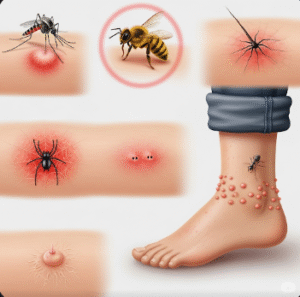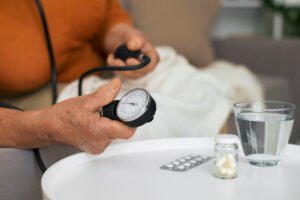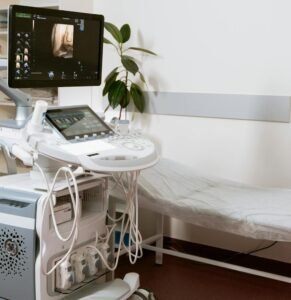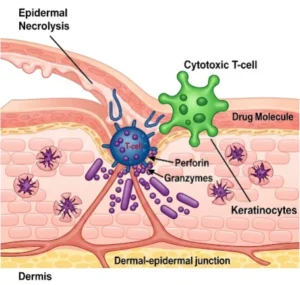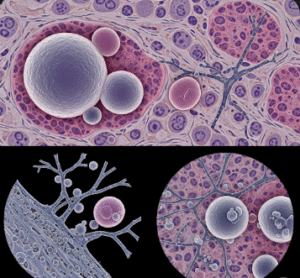Overview
Fluid retention, also known as edema, is the abnormal accumulation of fluid in the body’s tissues, commonly affecting the legs, ankles, feet, hands, or abdomen. It can result from underlying medical conditions, lifestyle factors, or medication side effects. In Korea, hospitals and specialized clinics provide diagnostic services, medical management, and treatment plans to address fluid retention effectively.
Key Facts
▶ Prevalence: Can affect anyone, especially older adults, pregnant women, or individuals with heart, kidney, or liver issues.
▶ Causes: Heart failure, kidney disease, liver disease, venous insufficiency, medications, or hormonal changes.
▶ Associated Symptoms: Swelling, stiffness, weight gain, tight clothing, fatigue, and shortness of breath (if severe).
▶ Treatment Options in Korea: Lifestyle modifications, medications, compression therapy, and advanced interventions for underlying conditions.
▶ Urgency: Sudden or severe swelling, especially with shortness of breath, requires immediate medical attention.
What is Fluid Retention?
Fluid retention occurs when excess fluid accumulates in tissues, causing swelling and discomfort. It may be localized (e.g., legs or hands) or generalized (affecting the whole body).
▶ Peripheral Edema: Swelling in the lower limbs, common in venous insufficiency or prolonged standing.
▶ Pulmonary Edema: Fluid accumulation in the lungs, causing difficulty breathing, often linked to heart failure.
▶ Abdominal Edema (Ascites): Fluid buildup in the abdomen, often related to liver disease.
▶ Pitting vs. Non-Pitting Edema: Pitting edema leaves a temporary indentation when pressed, whereas non-pitting does not.
▶ Chronic vs. Acute: Chronic edema develops gradually, whereas acute edema can be sudden and potentially life-threatening.
Note: Identifying the type and cause of fluid retention is crucial for effective treatment and prevention of complications.
What Symptoms Are Related to Fluid Retention?
▶ Swelling: Noticeable in feet, ankles, legs, hands, or face.
▶ Weight Gain: Rapid, unexplained increase due to fluid accumulation.
▶ Stiffness or Reduced Mobility: Swollen joints may limit movement.
▶ Tight Clothing or Shoes: Rings, bracelets, or shoes may feel tighter.
▶ Shortness of Breath: If fluid accumulates in the lungs.
▶ Fatigue: Extra fluid can affect circulation and energy levels.
▶ Abdominal Discomfort: Swelling or bloating in the abdominal area.
▶ Skin Changes: Shiny, stretched skin or indentation when pressed (pitting).
What Causes / Possible Causes
Fluid retention can result from cardiovascular, renal, hepatic, endocrine, or lifestyle factors:
▶ Heart Failure: Reduced heart efficiency leads to fluid accumulation in tissues.
▶ Kidney Disease: Impaired kidney function affects fluid and electrolyte balance.
▶ Liver Disease (Cirrhosis): Decreased protein production and portal hypertension cause ascites.
▶ Venous Insufficiency: Weak leg veins hinder blood return, causing swelling.
▶ Lymphatic Obstruction: Lymphedema results from impaired lymph drainage.
▶ Medications: Steroids, calcium channel blockers, NSAIDs, and certain diabetes drugs.
▶ Pregnancy: Hormonal changes and increased blood volume can cause peripheral edema.
▶ Dietary Factors: High salt intake contributes to fluid retention.
▶ Hormonal Changes: Menstrual cycle, menopause, or thyroid disorders may exacerbate swelling.
Note: Determining the underlying cause is essential to direct targeted therapy and prevent serious complications.
When Should I See a Doctor?
▶ Sudden or Severe Swelling: Especially in one limb or accompanied by pain or redness.
▶ Shortness of Breath or Chest Pain: May indicate pulmonary edema or heart issues.
▶ Rapid Weight Gain: Unexpected increases of more than 2–3 kg in a few days.
▶ Persistent or Worsening Edema: Not improving with rest or lifestyle adjustments.
▶ Associated Symptoms: Fever, redness, skin ulcers, or signs of infection.
▶ Underlying Conditions: Heart, kidney, or liver disease requiring specialized care.
▶ Children or Elderly: Swelling may indicate systemic disease needing prompt evaluation.
Tip: Korean hospitals provide specialized assessment, imaging, and laboratory tests to identify underlying causes accurately.
Care and Treatment
Management of fluid retention involves lifestyle interventions, medications, and treatment of underlying conditions:
▶ Lifestyle Modifications: Reduce salt intake, elevate swollen limbs, and maintain regular exercise.
▶ Compression Therapy: Compression stockings or wraps to improve circulation and reduce swelling.
▶ Medications: Diuretics to remove excess fluid, prescribed under medical supervision.
▶ Monitoring Weight and Swelling: Daily tracking helps detect early fluid accumulation.
▶ Treat Underlying Conditions: Heart failure, kidney disease, or liver issues require targeted therapy.
▶ Skin Care: Prevent breakdown or infection in areas affected by chronic edema.
▶ Avoid Prolonged Sitting or Standing: Movement helps prevent fluid buildup.
▶ Hydration Management: Balanced fluid intake is important; both overhydration and dehydration can worsen edema.
Treatment Options in Korea
Medical Evaluation:
▶ Physical Examination: Check swelling, pitting, and distribution of fluid.
▶ Laboratory Tests: Kidney, liver, thyroid function, electrolytes, and blood protein levels.
▶ Imaging Studies: Ultrasound, CT, or MRI to assess fluid accumulation and organ function.
▶ Specialist Consultation: Cardiologists, nephrologists, hepatologists, and endocrinologists coordinate care.
Advanced Therapies:
▶ Diuretic Therapy: Tailored medication plans to safely remove excess fluid.
▶ Surgical Intervention: In cases like severe lymphedema or ascites requiring drainage or shunt placement.
▶ Cardiovascular Management: Optimizing heart function in patients with heart failure.
▶ Multidisciplinary Care: Integrated approach involving medical, nutritional, and physiotherapy support.
Rehabilitation & Support:
▶ Patient Education: Lifestyle changes, compression techniques, and monitoring.
▶ Follow-Up Care: Regular check-ups to assess response to treatment and prevent recurrence.
▶ Specialist Clinics: Korean hospitals provide comprehensive programs combining diagnostics, therapy, and patient education.
Outcome: With early detection and comprehensive treatment in Korea, fluid retention can be effectively managed, reducing swelling, improving circulation, and enhancing overall well-being.


